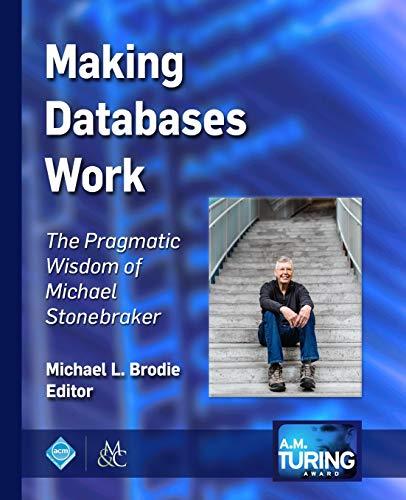Consider a secure hash function H that produces a 60-bit hash. A) Suppose that H(1) happens to hash to 0 (i.e., 60 zero bits). If
Consider a secure hash function H that produces a 60-bit hash.
A) Suppose that H(1) happens to hash to 0 (i.e., 60 zero bits). If you don't know anything further about H other than the fact that it's a secure hash function, what is the probability that H(2) also hashes to 0?
B) What is the probability that H has at least one collision?
C) Suppose that commodity hardware can compute a single computation of H in 10 nanoseconds (= 10-8 sec). Within an order of magnitude, how many years will it take for an attacker using a single system to find an x such that H(x) = y for a specific y? You can approximate one year as 3.107 sec.
D) Suppose now that a sustained form of Moore's Law means that after every year, H can be computed twice as quickly as for the previous year. (For this problem, assume that this acceleration happens discretely year-by-year, rather than being spread across a given year, as is actually more realistic.) Given this change, now about how many years will it take the attacker to find such an x?
Step by Step Solution
There are 3 Steps involved in it
Step: 1

See step-by-step solutions with expert insights and AI powered tools for academic success
Step: 2

Step: 3

Ace Your Homework with AI
Get the answers you need in no time with our AI-driven, step-by-step assistance
Get Started


